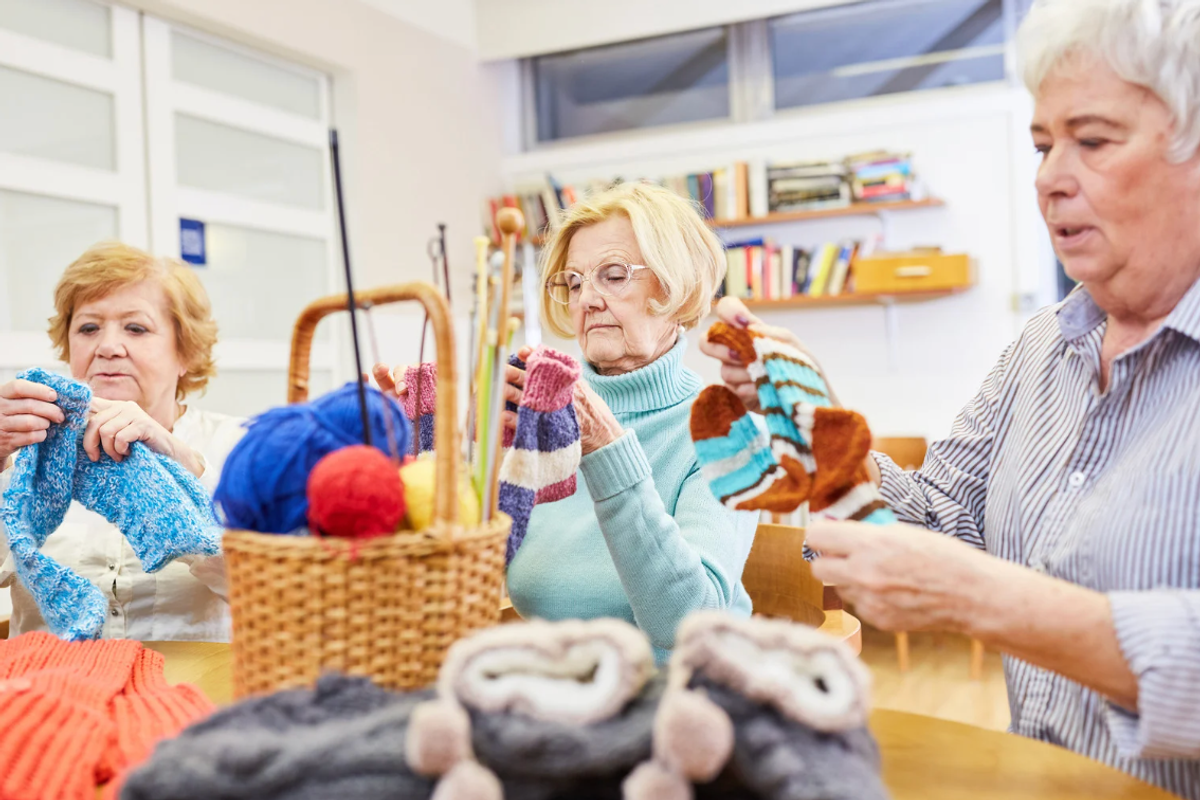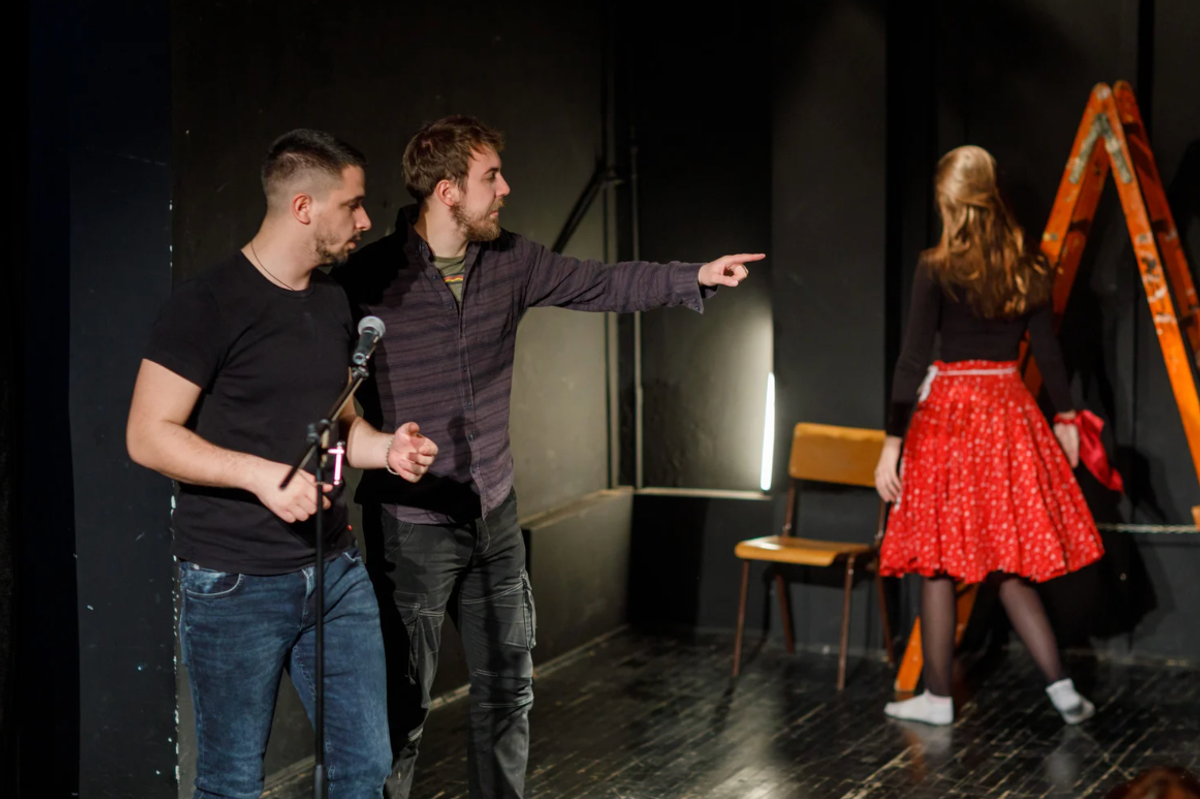22 hobbies folks claim are surefire ways to meet super-friendly people in real life
"Boxing. Yeah, I know it’s not the stereotype, but try it, you’ll be surprised."
Two women enjoying a boxing class.
Solo hobbies are great for establishing some quality alone time, but there’s something to be said for enrichment activities that add to our physical wellbeing, provide a creative outlet, or give a recreational boost while also helping us build our own little tribe of like-minded weirdos.
Still, it can be a little intimidating to know where to start. That’s why a good old-fashioned crowdsourced list can come in handy.
Recently, folks on Reddit answered the question, "What hobbies attract the most friendly people?" and it’s filled with out-of-the-box answers that can provide a little bit of inspiration and encouragement.
From unique art meet-ups to sports that are surprisingly welcoming, here are some of our favorite answers:
1. Sewing/Crocheting

"My very introverted and not-too-social mom picked up crocheting some time after turning 50. She found the most wholesome and friendly group of people that she is now super close with."
“The crochet community is pretty friendly, supportive, and incredibly talented.”
"I’ve had multiple instances where I’m shopping for yarn and another fiber artist will start a cute little 'whatcha makin'' convo. Then we trade advice and opinions, and I always feel like I just made a new friend. :)"
2. Archery

"Archery is pretty awesome, even just going to the public range. Everyone is friendly for sure."
"Something that always turned me off from other sports was when people would get overly emotional and angry when playing. The archery range is so peaceful."
3. Arcades

"Playing pinball or gaming in vintage arcades. Everyone there is usually pretty polite, civil, and just having a good time."
4. Rock Climbing

"Very laid back, active people in reasonably good shape, social, and eager to help with problems or just make small talk."
"If you live near a climbing gym, look into beginner classes. Many gyms offer a six- or eight-week program that teaches you how to belay and do everything safely. It's a great way to meet other people who are getting into climbing."
5. Improv

"I took a couple of improv classes a few years ago and had an absolute blast! Everyone should try it at least once in their life. I think it’s really helped me work with people and be a better teacher."
6. Birdwatching (birding)

"I'm a bird watcher! In my experience, most birders are just goofy nerds that love going 'oooh is that a [insert bird name here]???' It's great fun!"
7. Robot Combat

"The community is thriving, and people are helping each other all the time and sharing ideas. 15% of the spare parts I pack when going to meet-ups are meant for other people, and we gift away the broken bits of our robots to our opponents as trophies. Sometimes we even travel and Airbnb together."
8. Beekeeping

"It's a lot of older people who are interested in sharing knowledge."
9. Woodworking

"The woodworking community is really supportive. All it takes is one tablesaw mishap to humble you a bit and decide you'd rather not see that happen to anyone else, lol."
10. Boxing/Capoeira/Martial Arts

"Yeah, I know it’s not the stereotype, but try it, you’ll be surprised."
"Capoeira. The people are almost too friendly."
“I've wanted to do some kind of martial arts since high school and only managed to work up the courage to finally try it in my 30s. As a woman, it's such a masculine, intimidating environment. Once I got over the initial nerves (which took a while) and got to know some people, it was the warmest, most supportive, and authentic community I've been in."
11. Book clubs

"I joined a book club, and everyone is really cool!"
12. Gardening

"Gardeners are the most generous, friendliest people I've ever met. Optimistic too."
13. Hiking

"I’ve never joined a group that wasn’t full of the kindest people. The one I’m in now is lovely."
14. Miniature Painting

"The miniature painting community is one of the most supportive/friendly communities on Earth. You could probably shit on a mini and throw some glitter on it, and someone who's been painting for 25 years and is essentially a genius artist will be like, 'I love the color scheme, welcome to the hobby!'"
15. Horror Conventions

"I've met so many nice people at horror conventions. Polite, friendly, enthusiastic, and curious."
16. Scuba Diving

"The scuba community is super supportive. I think it’s inherent to how the sport works. Good communication, mutual respect, and caution are instilled in you during the education process. You need to be able to meet someone for the first time and potentially trust them with your life as a dive buddy. That requires a certain level of built-in trust. On top of that, there’s an extra layer of camaraderie that you get from diving in odd spots or at unusual times of the year. I once dove in a quarry on the absolute last day of the season, when it was cold enough that my wet gear froze to the table, but I had a blast chatting up the handful of other people unhinged enough to be out on the water that day."
17. Skateboarding

"It’s literally like a family everywhere you go."
18. Beer Brewing

"I'm sure most people would assume it's just a bunch of pretentious craft beer bros. However, people are incredibly cool and very positively constructive with their feedback. As a result, everyone who has gained some confidence is thrilled to share their beer and have people genuinely appreciate them."
19. Competition shooting

"Believe it or not…people are very kind to each other and we love to nerd out over our builds. Safety is almost always our #1 priority and I honestly feel more safe at the range than I do at a car meet!"
20. Mountain Biking

"If you're sitting on the side of the trail, everyone who passes will stop to ask if you're OK. People will share food, parts, tools, directions, advice, etc."
"You can literally pull up to a brewery, grab a beer, and sit down with other mountain bikers you've never met and instantly become friends by sharing stories or talking about how your ride went."
21. Disc Golf

"Disc golfers are generally friendly and chill."
Last but not least…
22. Fishing

"Every time I've joined a fishing club or just met someone while out fishing, we share stories and tips and enjoy the experience. Good people."

